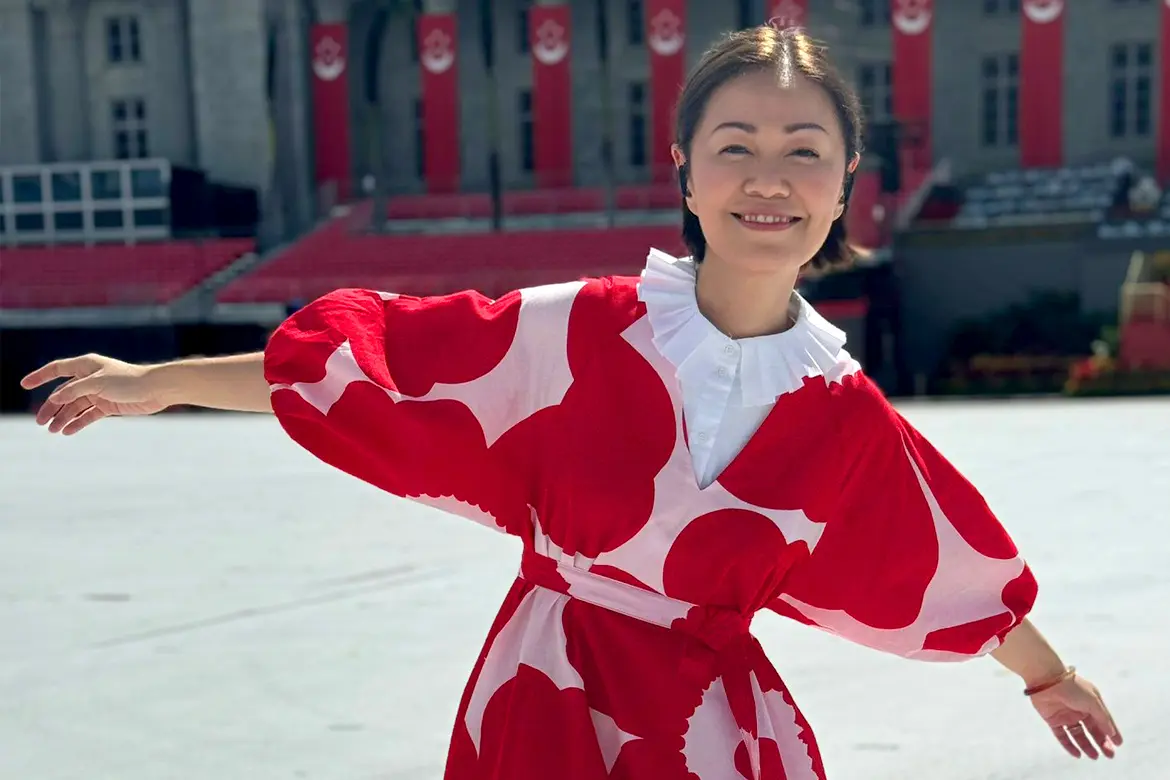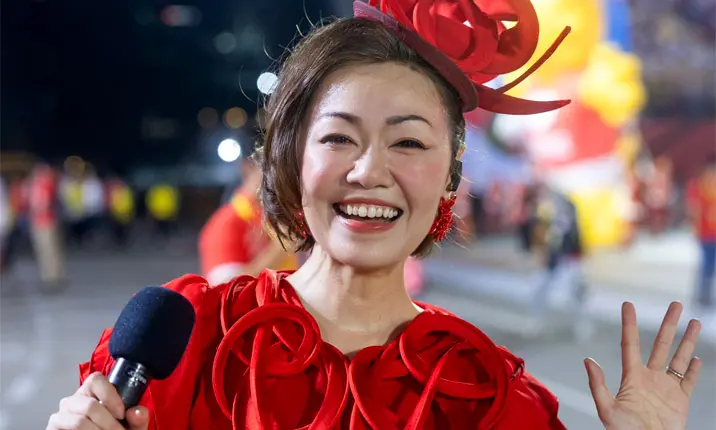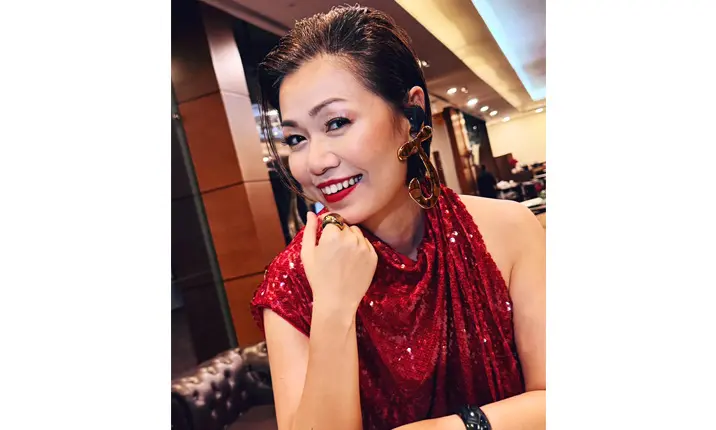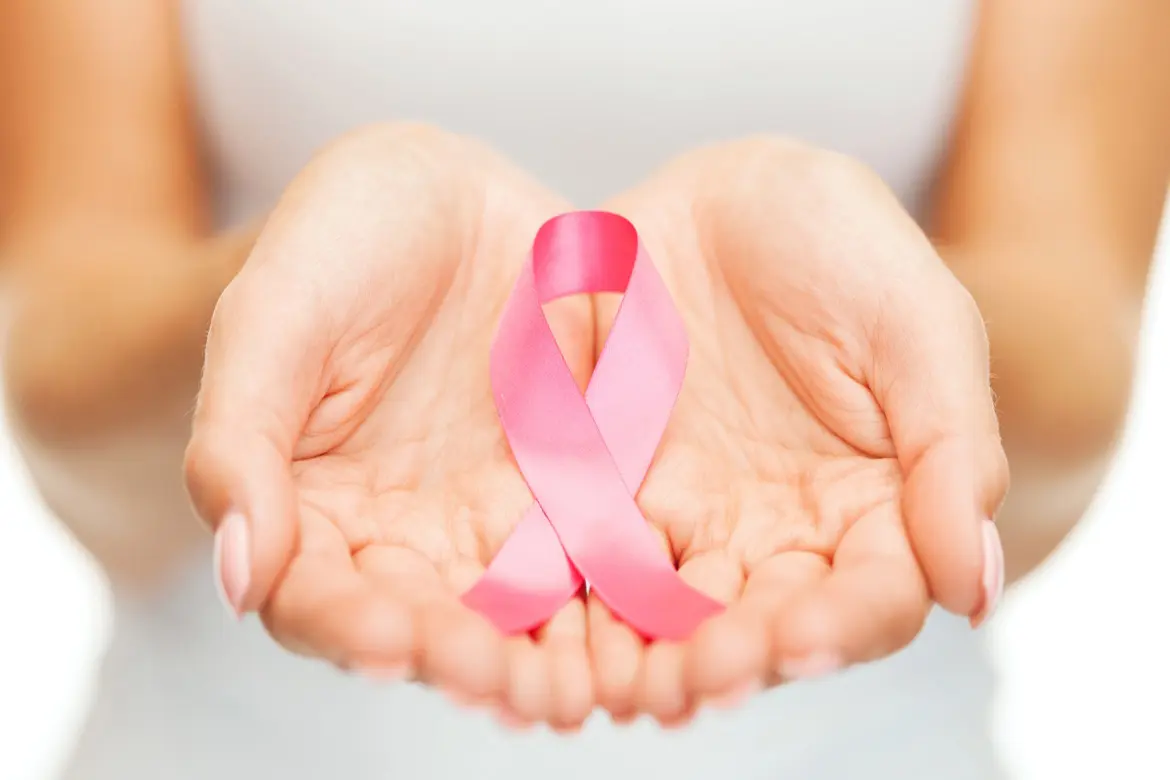

Source: Joanna Dong
How Early Detection Saved Her Life: Joanna's Journey
Last updated: Friday, October 25, 2024 | 9 min reading time
Singaporean singer-actress Joanna Dong, known for her soulful jazz vocals, faced an unexpected battle with breast cancer in July 2024. With her career - and her voice - on the line, she embarked on a whirlwind journey of personal resolve and medical intervention at Mount Elizabeth Novena Hospital.
For Joanna Dong, it wasn’t an abrupt moment of crisis that marked the beginning of her encounter with cancer. Instead, it was something subtle — almost forgettable.
She saw specks of brown on her clothes and sensed something was wrong
"I started noticing these little brown spots on my bra and pajamas earlier this year in January," shares the 42-year-old singer-actress. "I had no idea where they were coming from. One day, however, I saw something oozing from my right nipple. That’s when alarm bells went off."
Joanna had experienced breast scares before, having previously dealt with papillomas — benign, outward-growing lumps that can also cause blood nipple discharge. So, during a routine checkup with her breast surgeon Dr Lim Siew Kuan, she mentioned the discharge in passing, not thinking much of it at the time.
"I wasn’t too concerned at first because I’d read online that it wasn’t a serious symptom,” Joanna recalls candidly, turning to Dr Lim in a joint interview after her recovery. “What was on your mind then?”
"I was definitely worried, because we know that bloody nipple discharge is a warning sign for breast cancer,” says Dr Lim. “But since you did have a history of papillomas, this could be a benign cause for symptom. We needed to investigate further.”
A subsequent MRI scan showed something more concerning — blood pooling in the milk ducts. It was on both sides, even though the discharge was only on one.
"At the moment, I was still calm even though I was emotionally flustered,” says Joanna. “Part of the reason is because Dr Lim was very reassuring. She told me that even if it turned out to be ductal carcinoma in situ (stage 0 breast cancer), it was treatable. So, I held on to that.”
Remaining positive even when cancer became a reality
The initial biopsy revealed "atypical cells," but no definitive cancer diagnosis.
However, due to the presence of these abnormal cells and her nipple discharge symptoms, Dr Lim recommended a lumpectomy to remove a small segment of tissue and the affected ducts for further evaluation.
It wasn’t until after the lumpectomy at Mount Elizabeth Novena Hospital that the full reality set in: the lab report showed that she had Stage 1 breast cancer. The tumour was small — 7mm — and thankfully, has not yet begun to affect the lymph nodes and other surrounding tissues.
"After receiving the histology results from the lumpectomy, and we had the full picture, I knew we needed the help of Dr Lynette Ngo, our medical oncologist,” Dr Lim shares.
Joanna remembers the day vividly: "I had just been told of the news, and I was walking around, thinking, ‘Oh my goodness, I have cancer…’ Then, before I knew it, I was in Dr Ngo’s office discussing treatment."
The speed of it all was dizzying, but Joanna’s trust and connection to her doctors anchored her and made her feel safe.
Dr Ngo also recalls Joanna’s optimistic attitude during their first meeting: "She was chirpy and positive, and when we went over the treatment plan, she was ready. She said, ‘Yeah, sure. No problem. We’ll beat this.’"
The breaking point: When she started fearing for her voice
It wasn’t the word "cancer" that undid her eventually — it was the fear of losing her voice. As a professional singer, Joanna’s voice wasn’t just a career tool; it was her identity.
"I remember when you first told me about tamoxifen, a hormone therapy drug to treat breast cancer. " Joanna recalls, addressing Dr Ngo during the interview. "At first, I was okay with the idea of taking it, until I read some articles suggesting that there is a slight risk it might change my voice. That’s when I became a bit irrational.”
“I even said something extreme, like: ‘I would rather die than lose my ability to sing.’”
Dr Ngo recalls the moment and assures her that it was a reasonable response: “Every side effect matters, especially when it threatens something as personal as a voice. In your case, we scouted through all the data and made sure the risk of tamoxifen affecting your vocal quality was minimal."
Joanna, who describes herself as "a bit rebellious," admits that the more people tried to reassure her, the more she pushed back.
"But because you were so open and thorough, and took the time to grow through all the reports and to allay my fears, I trusted you,” she says to Dr Ngo. “I knew the choice was ultimately mine, but your gentle, firm words made me realise that my health came first. So, I made the decision to go with it.”
The rush to the stage: getting cancer treatment done before National Day
Image credit: NDP Photographer
During this time, Joanna was also preparing for one of her most important performances of the year —the National Day Parade 2024 in Singapore. Timing was everything. Could she finish her cancer treatment and still be ready to sing for the nation?
"I remember you were so focused on getting it done in time for National Day," Dr Lim recalls with a smile. "You stressed that it was your key concern, so we made sure to make it happen."
Behind the scenes, Joanna’s medical team, which included breast surgeon Dr Lim, medical oncologist Dr Ngo, and radiation oncologist Dr Grace Kusumawidjaja, worked closely to ensure her treatment plan was speedy but effective.
"We knew how important it was for Joanna to complete her treatment in time," shares Dr Lim. "But we also had to make sure we did everything by the book, with no compromises on her care."
One critical moment came during Joanna’s surgery.
"We did an intra-operative frozen section examination (a crucial medical procedure used for immediate decision-marking during surgery) to check the margins and to check the ducts to ensure the surrounding tissue was negative for cancer before we stopped the surgery," explains Dr Lim. "We didn’t want to risk needing a second operation.”
It was a careful decision that paid off. "It was a 10% chance, but I’m so glad you erred on the side of caution," Joanna continues. "In the end, our worst fears came true—there was more than what we thought."
The surgical precision didn’t just save Joanna from a second operation—it also set the stage for the next crucial step: radiation therapy. Without enough time to heal from a second surgery, her radiation treatment would have been delayed.
Radiation oncologist Dr Grace explains the intricacies and importance of Joanna’s treatment planning: "If Joanna had needed a second operation, the wound wouldn’t have been ready for radiation. Before starting radiation, we need the wound to be properly healed. In this case, everything was clear and we could proceed."
The process of radiation therapy also requires precision in timing and planning.
"We conducted quality assurance checks, ensuring the CT simulation scan was done and that the radiation plan was accurate," she adds. "We also ensured there was enough gap between her CT scan and the start of radiation itself. Everything had to be in order."
Through their meticulous coordination, Joanna’s medical team ensured she could complete 8 sessions of radiation therapy and still make it to her performance.
"From my view, everything was happening so quickly, and I was like, ‘Wow, I’m really going to be able to make it in time for the performance,’" Joanna recalls with a smile. "I don’t think at any point I thought I wouldn’t make it."
The thoughtfulness of her doctors made the difference
For Joanna, it wasn’t just the expertise of her doctors that made her feel assured during the treatment process — it was also their kindness and thoughtfulness that she was grateful for.
She shares an example of an incident: "Once, Dr Lim called me and asked: ‘Joanna… you’ll be out in the sun a lot on National Day, right? The radiation may cause a part of your skin that’s treated to be a bit tanner and more sensitive. Is your costume very revealing? Will it show that it might be uneven?’”
"She was very concerned, and took the initiative to consider that, as a professional and front-facing artist, how I look is actually a big part of my quality of life in my work. So, I was very thankful."
Joanna’s message: “Be aware of your body and be concerned.”
Image credit: Joanna Dong
Now cancer-free and back to doing what she loves, Joanna hopes her experience encourages more women to be vigilant about their health and to never dismiss symptoms as trivial. Her message is simple but powerful: pay attention to your body and be proactive about your health.
"I learned that because we caught the cancer so early, it was very treatable. The chances for full recovery and of recurrence were in my favour," Joanna reflects. "If you catch it early, like I did, you may not need chemotherapy. I also found radiation therapy to be a manageable process — I could even attend rehearsals while undergoing treatment, so the impact on my day-to-day life was minimal."
For her, early detection was the key to overcoming cancer.
"Don’t be afraid to find out if you have cancer, because even if you do, it doesn’t have to be the end,” Joanna says. “Early detection saved my life, and it can save yours too."
The importance of early cancer screening
Cancer screening plays a crucial role in identifying and treating cancer at an early stage. In Singapore, breast cancer is the most common cancer among women, accounting for 29.7%* of cases. It is also a leading cause of cancer deaths in women in this region.
Fortunately, breast cancer can be effectively detected and treated early. Regular self-examinations and mammograms are key methods for early detection. But it's not only about breast cancer; screenings can also help spot other types of cancer such as colon and lung.
Catching cancer early generally leads to less aggressive treatment, a better chance of recovery, a lower risk of the cancer coming back, less severe treatment methods, and reduced healthcare expenses.
Learn more about the symptoms of breast cancer, common cancer types in Singapore, and cancer screenings you can go for to get yourself checked today.
* Source: Singapore Cancer Registry Annual Report 2021
The vital role of health insurance
One of the primary benefits of health insurance is the financial protection it offers against unexpected medical costs. Healthcare can be expensive, and without insurance, the burden of these costs can be overwhelming.
Having health insurance also means you can go for health check-ups and seek timely medical attention when needed. This proactive approach to health can lead to early detection and treatment of illnesses, which not only improves health outcomes but can also be more cost-effective in the long run. Early treatment often means less invasive procedures and shorter recovery times, which translates to lower overall healthcare costs.
Health insurance is not just a financial tool; it is an investment in your health and peace of mind. In a world where health is unpredictable, having a health insurance plan can be a prudent and necessary step for your future.
Learn more about health insurance and the different types of policies available in Singapore.
Mount Elizabeth Cancer Care: Possible Starts Today
At Mount Elizabeth, we provide comprehensive cancer care delivered by a compassionate and experienced team of surgical oncologists, medical oncologists, and radiation oncologists. If you're experiencing breast cancer symptoms or have any health concerns, we’re here to help.
Find a specialist Brain & Spine Care
Brain & Spine Care









